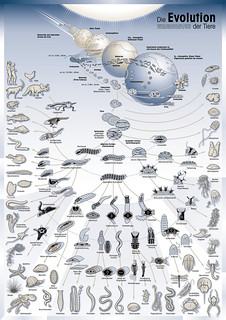Why does data need to have sex?

Data needs the ability to combine with other data in new ways to reach maximum value. So data needs to have the equivalent of sex.
That's why I used sex in the title of my previous article, Data Doesn't Need To Be Free, But It Does Need To Have Sex. So it wasn't some sort of click-bait title as some have suggested.
Sex is nature's way of bringing different data sets together, that is our genome, and creating something new that has a chance to survive and thrive in changing environments.
Currently data is cloistered behind Walled Gardens and thus has far less value than it could have. How do we coax data from behind these walls? With money. So that's where the bit about "data doesn't need to be free" comes from. How do we make money? Through markets. What do we have as a product to bring to market? Data. What do services need to keep producing data as a product? Money.
So it's a virtuous circle. Services generate data from their relationship with users. That data can be sold for the money services need to make a profit. Profit keeps the service that users like running. A running service produces even more data to continue the cycle.
Why do we even care about data having a sex?
Historically one lens we can use to look at the world is to see everything in terms of how resources have been exploited over the ages. We can see the entire human diaspora as largely being determined by the search for and exploitation of different resource reservoirs.
We live near the sea for trade and access to fisheries. Early on we lived next to rivers for water, for food, for transportation, and later for power. People move to where there is lumber to harvest, gold to mine, coal to mine, iron to mine, land to grow food, steel to process, and so on. Then we build roads, rail roads, canals and ports to connect resource reservoirs to consumers.
In Nova Scotia, where I've been on vacation, a common pattern was for England and France to fight each other over land and resources. In the process they would build forts, import soldiers, build infrastructure, and make it relatively safe to trade. These forts became towns which then became economic hubs. We see these places as large cities now, like Halifax Nova Scotia, but it's the resources that came first.
When you visit coves along the coast of Nova Scotia they may tell you with interpretive signage, spaced out along a boardwalk, about the boom and bust cycles of different fish stocks as they were discovered, exploited, and eventually fished out.
In the early days in Nova Scotia great fortunes were made on cod. Then when cod was all fished out other resource reservoirs like sardines, halibut, and lobster were exploited. Atlantic salmon was over fished. Production moved to the Pacific where salmon was once again over fished. Now a big product is scallops and what were once trash fish, like redfish, is now the next big thing because that's what's left.
During these cycles great fortunes were made. But when a resource runs out people move on and find another. And when that runs out people move on and keep moving on until they find a place to make make living.
Places associated with old used up resources often just fade away. Ghosts of the original economic energy that created them. As a tourist I've noticed what is mined now as a resource is the history of the people and places that were created in the process of exploiting previous resources. We call it tourism.
Data is a resource reservoir like all the other resource reservoirs we've talked about, but data is not being treated like a resource. It's as if forts and boats and fishermen all congregated to catch cod, but then didn't sell the cod on an open market. If that were the case limited wealth would have been generated, but because all these goods went to market as part of a vast value chain, a decent living was made by a great many people.
If we can see data as a resource reservoir, as natural resources run out, we'll be able to switch to unnatural resources to continue the great cycle of resource exploitation.
Will this work? I don't know. It's just a thought that seems worth exploring.



